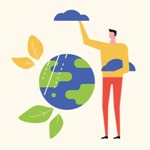
Food
Many people, having risen through the economic development curve, and will consume diets far higher in protein - in the cases of China and India, three to five higher. To meet this, global food output must rise by 110 per cent, says the UN Environment Program.
The U.N.'s Food and Agriculture Organisation thinks this is technically feasible. The unanswered question is whether it is sustainable. Key trends suggest it isn't:
- surface water available to grow food is contracting sharply due to city demand
- groundwater resources are declining everywhere
- farm land is being lost to urban development
- soil and nutrient erosion is increasing worldwide
- nutrient prices are likely to rise sharply
- farm production research is in global decline
- marine harvests are dwindling
- biofuels are replacing food crops in some countries
- half the world may face regular drought by 2050.
In this list of challenges, the thing that stands out is that only one is even somewhat speculative - the impact of climate change. For the first time in history, urban demand for water is outpacing farm demand, as city users outbid irrigators.By 2050 cities will consume half the world's fresh water - reducing that available for food production by one third.





